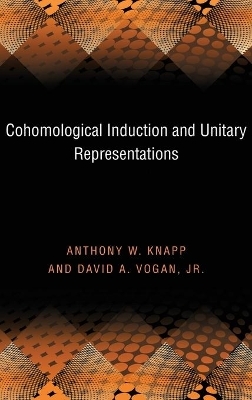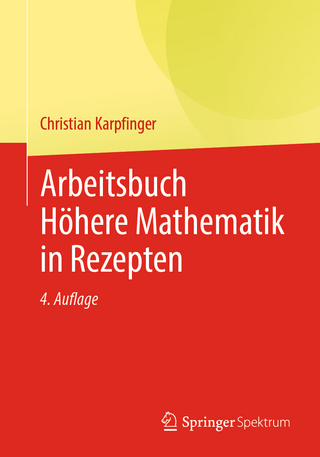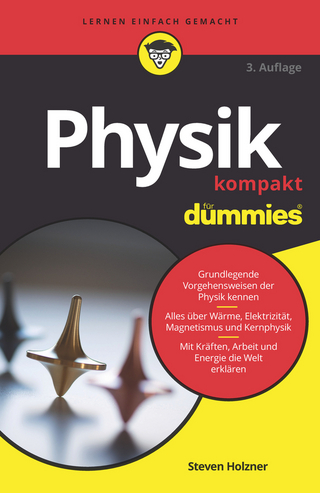
Cohomological Induction and Unitary Representations
Seiten
1995
Princeton University Press (Verlag)
978-0-691-03756-1 (ISBN)
Princeton University Press (Verlag)
978-0-691-03756-1 (ISBN)
Offers a systematic treatment of the development and use of cohomological induction to construct unitary representations. This book develops the necessary background in representation theory and includes an introductory chapter of motivation, a treatment of the "translation principle"���', and four appendices on algebra and analysis.
This book offers a systematic treatment--the first in book form--of the development and use of cohomological induction to construct unitary representations. George Mackey introduced induction in 1950 as a real analysis construction for passing from a unitary representation of a closed subgroup of a locally compact group to a unitary representation of the whole group. Later a parallel construction using complex analysis and its associated co-homology theories grew up as a result of work by Borel, Weil, Harish-Chandra, Bott, Langlands, Kostant, and Schmid. Cohomological induction, introduced by Zuckerman, is an algebraic analog that is technically more manageable than the complex-analysis construction and leads to a large repertory of irreducible unitary representations of reductive Lie groups. The book, which is accessible to students beyond the first year of graduate school, will interest mathematicians and physicists who want to learn about and take advantage of the algebraic side of the representation theory of Lie groups.
Cohomological Induction and Unitary Representations develops the necessary background in representation theory and includes an introductory chapter of motivation, a thorough treatment of the "translation principle," and four appendices on algebra and analysis.
This book offers a systematic treatment--the first in book form--of the development and use of cohomological induction to construct unitary representations. George Mackey introduced induction in 1950 as a real analysis construction for passing from a unitary representation of a closed subgroup of a locally compact group to a unitary representation of the whole group. Later a parallel construction using complex analysis and its associated co-homology theories grew up as a result of work by Borel, Weil, Harish-Chandra, Bott, Langlands, Kostant, and Schmid. Cohomological induction, introduced by Zuckerman, is an algebraic analog that is technically more manageable than the complex-analysis construction and leads to a large repertory of irreducible unitary representations of reductive Lie groups. The book, which is accessible to students beyond the first year of graduate school, will interest mathematicians and physicists who want to learn about and take advantage of the algebraic side of the representation theory of Lie groups.
Cohomological Induction and Unitary Representations develops the necessary background in representation theory and includes an introductory chapter of motivation, a thorough treatment of the "translation principle," and four appendices on algebra and analysis.
Anthony W. Knapp is Professor of Mathematics at the State University of New York at Stony Brook. David A. Vogan, Jr., is Professor of Mathematics at the Massachusetts Institute of Technology.
PrefacePrerequisites by ChapterStandard NotationIntroductionIHecke AlgebrasIIThe Category C(g, K)IIIDuality TheoremIVReductive PairsVCohomological InductionVISignature TheoremVIITranslation FunctorsVIIIIrreducibility TheoremIXUnitarizability TheoremXMinimal K TypesXITransfer TheoremXIIEpilog: Weakly Unipotent RepresentationsApp. A. Miscellaneous AlgebraApp. B. Distributions on ManifoldsApp. C. Elementary Homological AlgebraApp. D. Spectral SequencesNotesReferencesIndex of NotationIndex
| Erscheint lt. Verlag | 21.5.1995 |
|---|---|
| Reihe/Serie | Princeton Mathematical Series |
| Verlagsort | New Jersey |
| Sprache | englisch |
| Maße | 152 x 235 mm |
| Gewicht | 1474 g |
| Themenwelt | Mathematik / Informatik ► Mathematik ► Algebra |
| Mathematik / Informatik ► Mathematik ► Geometrie / Topologie | |
| ISBN-10 | 0-691-03756-6 / 0691037566 |
| ISBN-13 | 978-0-691-03756-1 / 9780691037561 |
| Zustand | Neuware |
| Haben Sie eine Frage zum Produkt? |
Mehr entdecken
aus dem Bereich
aus dem Bereich
Buch | Softcover (2022)
Springer Spektrum (Verlag)
39,99 €


